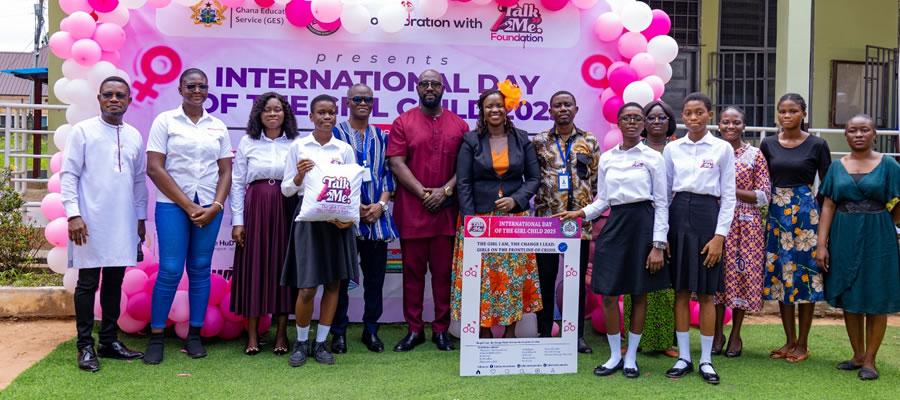

Investment and Business Potential
The Municipality is endowed with vast track of land which could be developed agricutural and estate purposes. Located in the coastal savanna agro-ecological zone and annual rainfall average 1000mm, it has high potential for agriculture. The Municipality also has a comparative advatage in the production of pineapples, pawpaw, cassava, maize and vegetables.
The large track of land could also be used for estate development. This is because Accra is fast extending . There are large deposits of sand, stone, clay and laterite which could be developed into vialble industries.
All the tourist attraction sites also have potential of been improved and upgraded by an investor to attract much more tourists which will increase revenue.
The Municipality is served by one major highway; the Achimota-Nsawam Highway. Again, all parts of the Municipality are accessible year round.
There is also abudant and chead labour in the Municipality which could be tapped for production. The Municipality has relatively low level of crime. Thus, investors would feel safe to go about their businesses.
The Ga West Municipal has a great deal of opportunities for both private investment and joint ventureship with the public sector. This is predicated by the enabling factors for development coupled with the infrastructure set-up and the district’s proximity to the nation’s capital and the seaport at Tema. There are three main economic activities.
These are agriculture, industry, and commerce. The major agricultural activities are crop production, fisheries and livestock development. Among the wide range of vegetables produced in the municipal are tomatoes, pepper, beans and okro.
There are sizeable pineapple farms around Amasaman, the district capital, and Pokuase. Majority of the pineapples produced are for the export market. The suitability of the vegetation and the soil types greatly enhances the large-scale production of these non-traditional crops, and the Assembly actively encourages investments in to this sector, which has very rich potential.
The Assembly is also noted for the production of food crops such as cassava, maize, yam, cocoyam and plantain. The production of cash crops such as palm nut, coconut, cashew nut, pawpaw and watermelon is also widespread. These products have the potential for export and processing. The coastline within the district is about 10km long and provides a wide range of fish, including tuna, sardines, tiger fish, shrimps and lobsters. Most of the fishing is done by canoe fishermen and the women along the coast are engaged in processing and sale of fish.
The major fishing communities are Bortianor, Oshiye and Kokrobite. The climatic condition of the district highly favours the production of livestock such as cattle, sheep, pigs and poultry. The viability of the poultry industry in particular is mostly due to the existence of the nearby large urban market and easy access to young chicks, poultry feed, drugs and vaccines.
A great proportion of the municipality is relatively free from tsetse flies and so can support cattle rearing. A constructional material has become one of the fastest growing industries in the municipality. With its enormous deposits of natural building materials of high quality sand and stone, coupled with its large undeveloped tracts of land, which are very close to the capital, the municipality is a favourite area for estate development.
Currently, a very wide range of housing units are being developed in Pokuase – ACP Estates, Adenta, and Weija – GREDA & SSNIT and Kwabenya. These areas have large stretches of good quality stone deposits.
Telecommunication and banking services are also available in the peri-urban areas of the municipality. The industrial sector can boast of a number of industrial establishments, particularly in the Achimota and Madina Areas.
Notable amongst them are Ghana Breweries, Panbros Salt, Nkulenu Industries, Mechanical Lloyd, Farmindus, Voltic Water Company, Instyle Aluminum Company, Insada Bricks Factory and Gihoc Pharmaceuticals. The foregoing gives ample indication of the huge investment potential of the Assembly is highly committed in to collaborating with all and sundry to have the municipality developed for the benefit of its people.
Financial Institutions
The financial institutions located within the municipality are the Ga Rural Bank, with its head quarters in Amasaman. It has branches in Mallam, and ABC Junction.
Banking
• Commercial Banks (1)
• Development Banks (none)
• Merchant Banks (none)
• Non-Banking Financial Institutions (1)
• Rural Bank (1)
• Insurance Companies (none)
• Reinsurance Company (none)
POCC
Potentials, Opportunities, Constraints and Challenges in the Municipality
Based on the key problems and related issues outlined above the following Potentials, Opportunities, Constraints and Challenges have been identified to serve as the basis for the formulation and implementation of various projects and programmes geared towards addressing the basic issue of growth and poverty reduction during the plan period.
There exist in the Municipality enormous Potentials and Opportunities which when carefully harnessed would bring about rapid and smooth development. Potentials are defined here as internal advantages and resources which when utilized will overcome its challenges while Opportunities are the external enabling factors for development. Constraints are disadvantages emanating from internal factors and Challenges are external obstacles that may hamper smooth development efforts.
In the pdf attached is a tabular representation of the identified Potentials, Opportunities, Constraints and Challenges of the Ga West Municipal Assembly in the three thematic areas of the GPRS II.
Private Sector Competitiveness
- Role of Private Sector
- The Assembly is well aware of the enormous contribution of the private sector in the development of the economy. It is therefore our commitment to provide the required back up support to the private sector and create the enabling environment for their active participation in the development process. Currently, the Assembly has been having regular interaction with over 45 NGO’s. This interaction will be expanded to cover the following:
- Promoting greater participation in housing delivery by the private sector through the acquisition of lands for estate development.
- This is expected to provide the needed incentive to private estate developers to invest more in the housing sector.
- Review laws and regulations that adversely affect private business.
- Promote a more positive attitude towards the role of the private sector through regular interaction between the Assembly and the private sector.
- Development issues identified in various communities in the Municipality have been classified under the three thematic areas of the GPRS II as follows:
- Priorities for Private Sector Competitiveness
- Low productivity and production
- Inadequate employment opportunity
- Poor access roads within the built environment
- Poor road network and condition
- Poor drainage system
- Inadequate private sector investment especially in the rural areas
- Difficulties with accessing credit facilities
- Inadequate market infrastructure
- Lack of modern lorry stations
- Loss of agricultural farm lands
- Inadequate agro processing industries
- Lack of storage facilities
- Human Resource Development
- Inadequate portable water supply and sanitation facilities
- Poor health and nutrition
- Poor environmental condition
- Inadequate access to health care
- High rate of Chieftaincy and Land disputes
- Poor quality of health care
- Inadequate electricity supply
- Inappropriate refuse collection /disposal practices
- Widespread uncontrolled development
- Inadequate educational facilities
- Lack of access of rural population to improved housing and housing technology
- Rudimentary construction skills of local
- Low rate of HIV /AIDS prevention
- Inadequate care and support services for PLWHAS
- Lack of funding for HIV/AIDS programmes
- Lack of work place programmes to manage HIV/AIDS
- Good Governance and Civic Responsibility
- Inadequate knowledge of the Assembly’s Concept
- Inadequate knowledge of the Constitution and civic rights and responsibilities.
- Inadequate valuation data on properties
- Inadequate office accommodation for MA staff and decentralized departments
- Lack of residential accommodation for staff
- Inadequate logistic support
- Leakage in revenue mobilization
- Ineffective performance of sub-district structures
- Youth apathy towards the democratic process
Date Created : 11/20/2017 6:56:11 AM










 facebook
facebook
 X
X
 Youtube
Youtube
 instagram
instagram
 +233 593 831 280
+233 593 831 280 0800 430 430
0800 430 430 GPS: GE-231-4383
GPS: GE-231-4383 info@ghanadistricts.com
info@ghanadistricts.com Box GP1044, Accra, Ghana
Box GP1044, Accra, Ghana